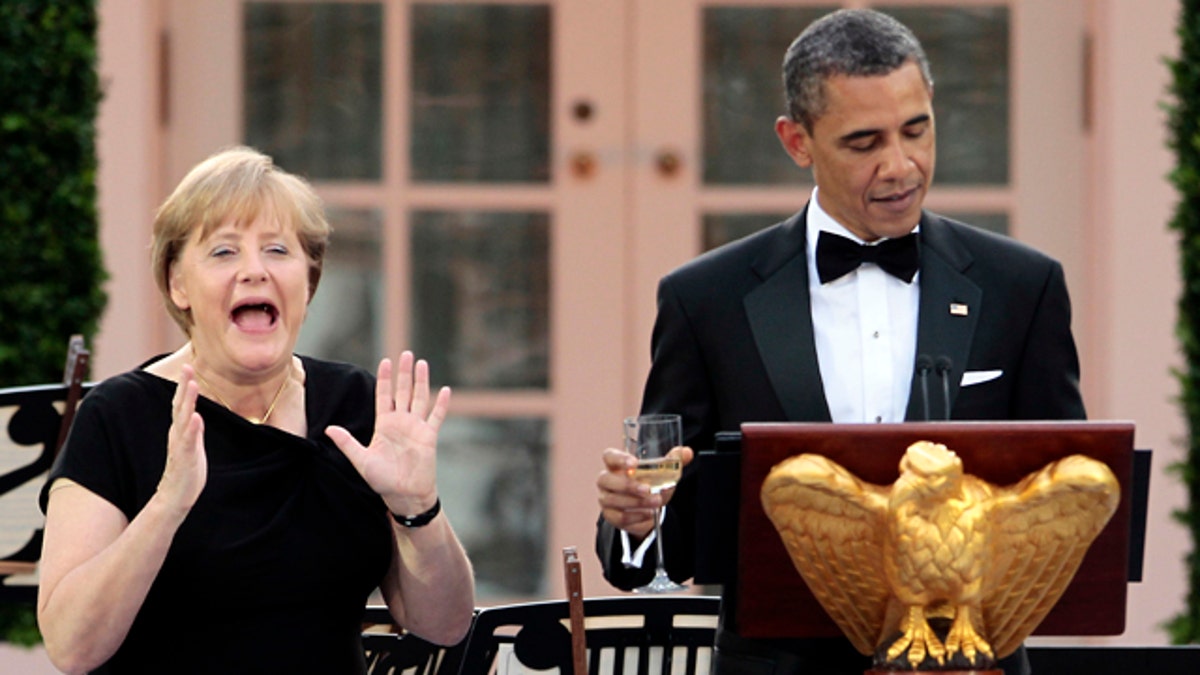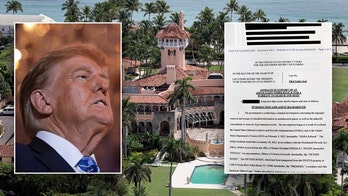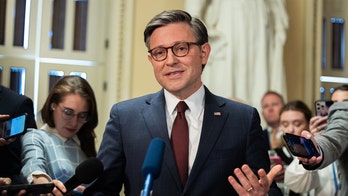
June 7: German Chancellor Angela Merkel, left, reacts as President Obama remembers to share a toast in her honor at a State Dinner in the Rose Garden of the White House in Washington. (AP)
Lyndon Baines Johnson sat in the Oval Office when The Conference Board, an independent financial data firm, first began to keep tabs on "consumer confidence" -- a monthly measurement of the state of optimism among ordinary Americans about their own economic prospects.
And since the spring of 1967, the metric has taken on added importance as a reliable, though not infallible, indicator of how likely consumers are to spend their disposable income. For much of 2011, however, consumer confidence has been lower than what it was for the same time frame in 2010.
Indeed, the dismal unemployment numbers the country posted in May, and six consecutive weeks of decline on Wall Street, led to the Gallup organization this month to record the lowest weekly level of consumer confidence in this calendar year.
President Obama, meeting at the White House with German Chancellor Angela Merkel on June 7, cited still another reason for the sour mood among shoppers and spenders: high gasoline prices.
"It has an enormous impact on family budgets and on the psychology of consumers," the president said in remarks that underscored the degree to which "confidence" is, quite literally, all in the mind of the average American.
"If everybody's kind of gloomy about the future, people don't spend, they don't invest, don't take risks," said Martin Baily, the former chairman of the White House Council of Economic Advisers under President Clinton. "Then the economy is likely to remain on a slow growth or even a recession path."
Yet economists differ in their assessments of how directly any president of the United States can influence the "psychology" to which Obama alluded.
"A lot of presidents try to do this," said Veronique de Rugy, an economist at George Mason University, "when they talk about how they're going to invest in our country, how they're going to invest in America, how they're going to invest in our roads and education. ... And I think, for a while, it actually worked; people liked this idea. But I actually think that people are, like, tired, and they also understand that nothing really good ever comes out of it."
Baily, by contrast, harkened back to Franklin D. Roosevelt and Ronald Reagan as examples of two chief executives who managed to project, despite troubled times, a sense of optimism that lifted national spirits and spurred the economy.
The data maintained by The Conference Board shows that consumer confidence rose by some 41 points across Reagan's presidency -- the strongest display of improvement for any of the presidents since 1967. By the end of his two terms in office, President Clinton saw the metric rise by 39.6 points, which equaled exactly the decline in consumer confidence measured during the term of his immediate predecessor, George H.W. Bush.
The two terms of George W. Bush, which saw not only the 9-11 attacks but two wars, the anthrax attacks and the onset of the Great Recession, posted the worst losses for consumer confidence for any individual president since 1967, with the metric declining by nearly 80 points.
Still, the numbers can be baffling. The terrorist attacks of Sept. 11, 2001 -- an event that traumatized and galvanized the country like few other events in its history -- was accompanied by only a marginal drop in consumer confidence. The decline was only 2.5 percentage points, and that was fully restored by January 2002.
Contrast the negligible Sept. 11 effect with the steepest plunge on record, following the tumultuous month of October 1973. Then, Americans were stunned by the "Saturday Night Massacre" in the Watergate scandal, and the ensuing calls for President Nixon's impeachment; the Yom Kippur War in the Mideast; and the OPEC oil embargo against the United States. By Christmas of that year, consumer confidence had shrunk by more than one-third.
Yet not even Nixon's resignation in August 1974, and the stagflation-addled economy of that autumn, produced the lowest recorded measurement of consumer confidence; that came in February 2009, at the dawn of the Obama presidency, and just after the Great Recession had hit bottom.
The highest such measurement? Y2K. The dawn of the new millennium found Americans bursting with optimism about the future of the U.S. economy and their own purchasing power. In January 2000, The Conference Board recorded an unprecedented consumer confidence measurement of 144.7, which has only been equaled once since then -- two months later, in March 2000.
For President Obama, projecting optimism about the country's economic path will therefore remain a critical, if elusive, goal as he heads into his re-election campaign. Some analysts go so far as to suggest that candidates and campaigns matter less to the outcome of presidential elections than does the country's perception, right or wrong, about the future of the country, and particularly the economy.
"I'm a Democrat and I support what Obama's trying to do to get the economy going again," said Baily, now a senior fellow in economic studies at the Brookings Institution. "You decide whether he's able to create that confidence. Certainly consumers are not that confident at the moment."




